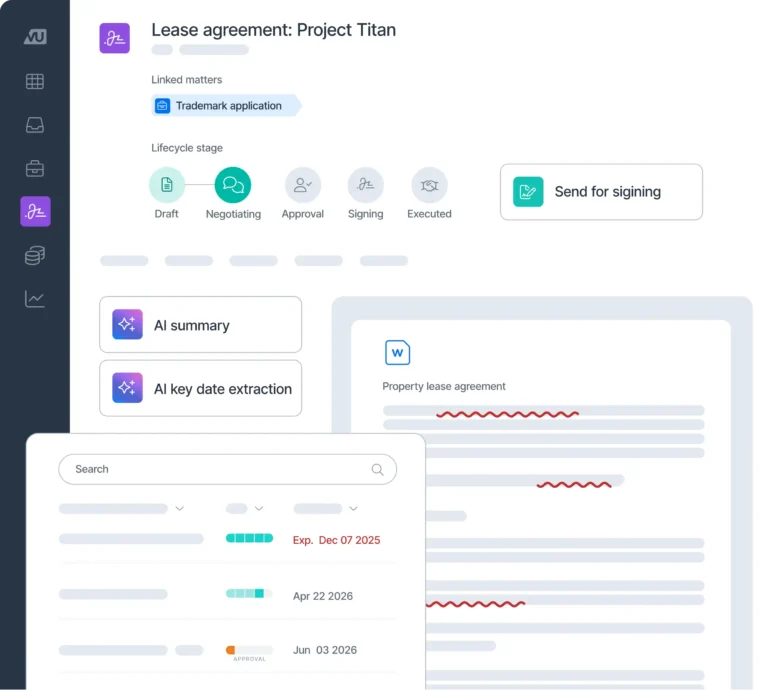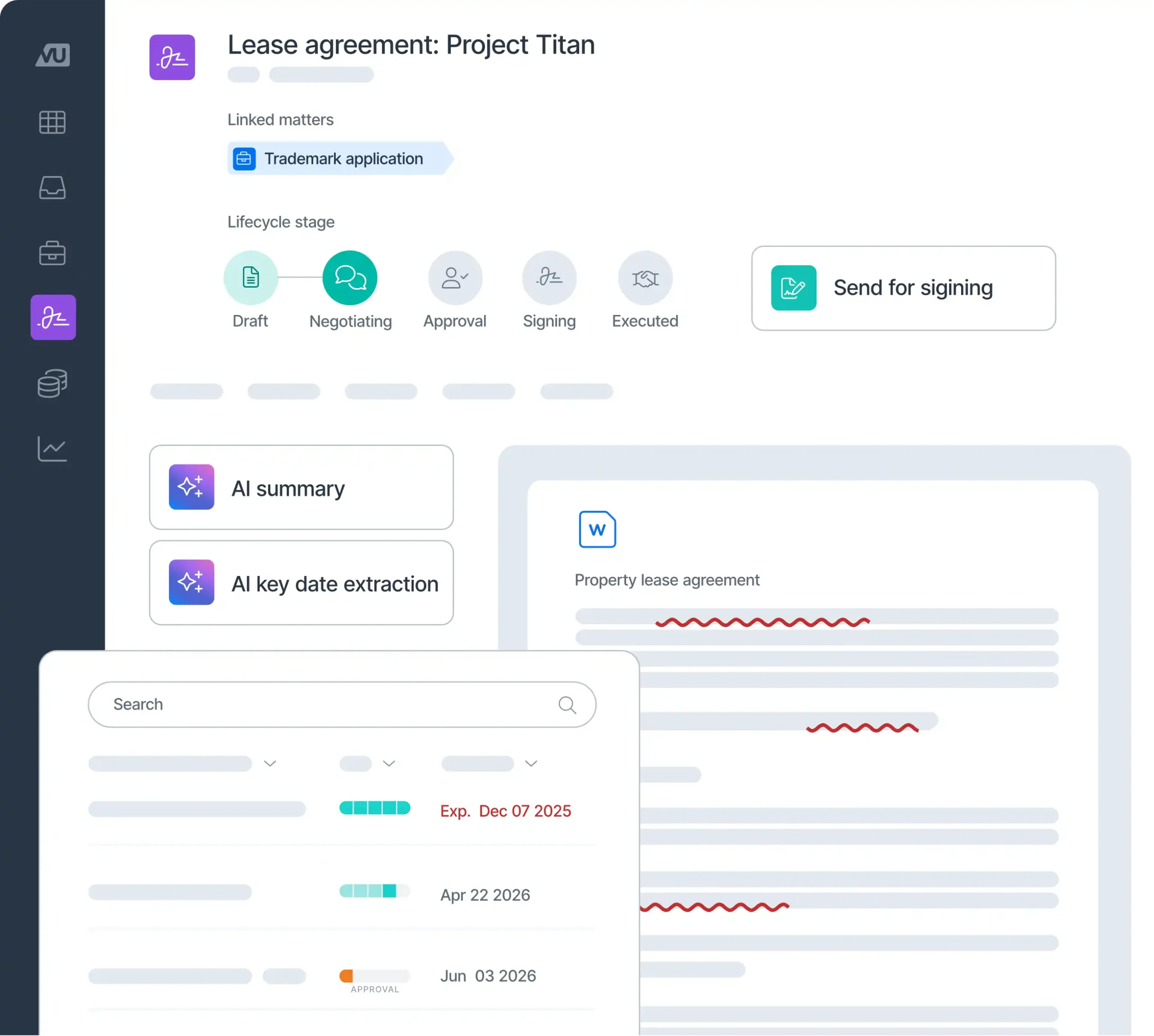
Legal contract management involves the end-to-end process of managing and executing contracts throughout the contract lifecycle. This process, referred to as contract lifecycle management (CLM), also includes tracking and monitoring contract delivery, associated costs, risk management, relationship management, problem resolution, and the review process.
As the bread and butter of a legal team’s day-to-day work, contracts are also what keep the business moving (operationally and financially), while serving as a stop-gate to minimize organizational risk exposure. For these reasons and many more, legal contract management is important.
A missed renewal date could see a contract renewal that wasn’t supposed to happen. Delayed execution of a contract may result in a crucial deal slipping away from the sales team, and the manual approval process can cause hours lost to administrative tasks each day (The 2023 In-House Legal Technology Report). Even worse, data can get lost between the cracks as each contract progresses across various tools and technologies.
Given that in-house legal teams are expected to be doing more with less (ACC 2023 Legal Technology Report for In-house Legal Professionals), an ineffective approach to legal contract management can be costly for both the legal team and the wider business.
The number and stages of a contract lifecycle can vary depending on both your legal teams and organizational requirements and the contract management tool(s) and workflows utilized.
In most cases, the contract lifecycle is likely to include the following stages:
Contract management can take many different shapes and forms, some arguably more effective than others.
At one end of the spectrum, some teams rely on manila folders, physical filing cabinets, spreadsheets, and other manual processes. Some contract management software solutions, known as point solutions, offer contract management as a standalone system where other tools and technologies are required to manage the rest of the work that the legal teams does, such as receiving legal requests (intake), document management, matter management, and spend management.
On the other hand, Enterprise Legal Management software (ELMs) is far more complex and robust, seeing many features and functionalities underutilized (The 2023 In-House Legal Technology Report).
When identifying the best contract management software, it’s important to firstly quantify the legal efficiency and potential time savings of your legal function in its current state. For example, 28 percent report spending three hours or more per day searching through emails and/or other systems to determine contract, matter history, or advice from outside counsel (The 2023 In-House Legal Technology Report) - outcomes which can be associated with each of the approaches mentioned above.
Evidently, those hours snowball, and as we know, time equals money - a hard reality to face remembering that legal teams are expected to be doing more with less (ACC 2023 Legal Technology Report for In-house Legal Professionals). That’s why the best contract management software is one that supports all the work legal does. An example of this is a legal workspace such as LawVu.
Reason being, a legal workspace approach sees contracts and matters managed together in one place - which is important given contracts and matters go hand-in-hand with legal’s day-to-day work. It also means that legal teams can consolidate all other aspects of their work, including document management, spend management, intake (request for legal) and self service, and insights and reporting into one consolidated system. This means working smarter to get time back while gaining total visibility and control over all of legal’s work.
With a consolidated approach, legal teams can experience contextual contracts along with access to actionable data, metrics, and insights. What's more, a consolidated workspace approach also enables collaboration for both the wider business and outside counsel, enabling them to manage their own contracts.
This means streamlining workflows for the entire business, including legal, without the need to switch between systems, while saving time and mitigating risk.
When done right, contract management can enable and support an efficient, productive, engaged, and impactful in-house legal team. So, when it comes to reassessing your current contract management solution, or if you’re in the market for a new one, we think these are the non-negotiables you should be considering:
